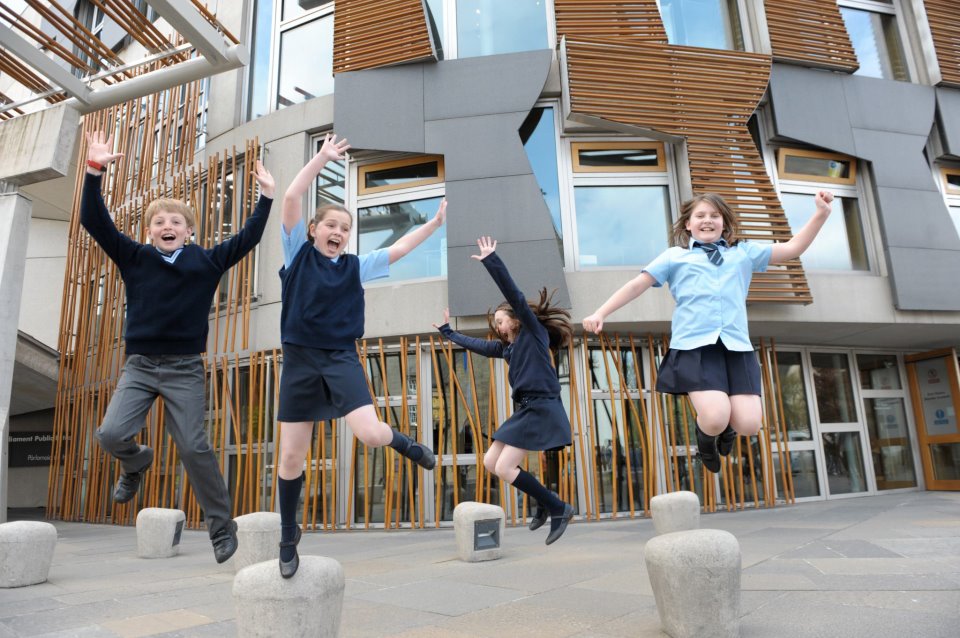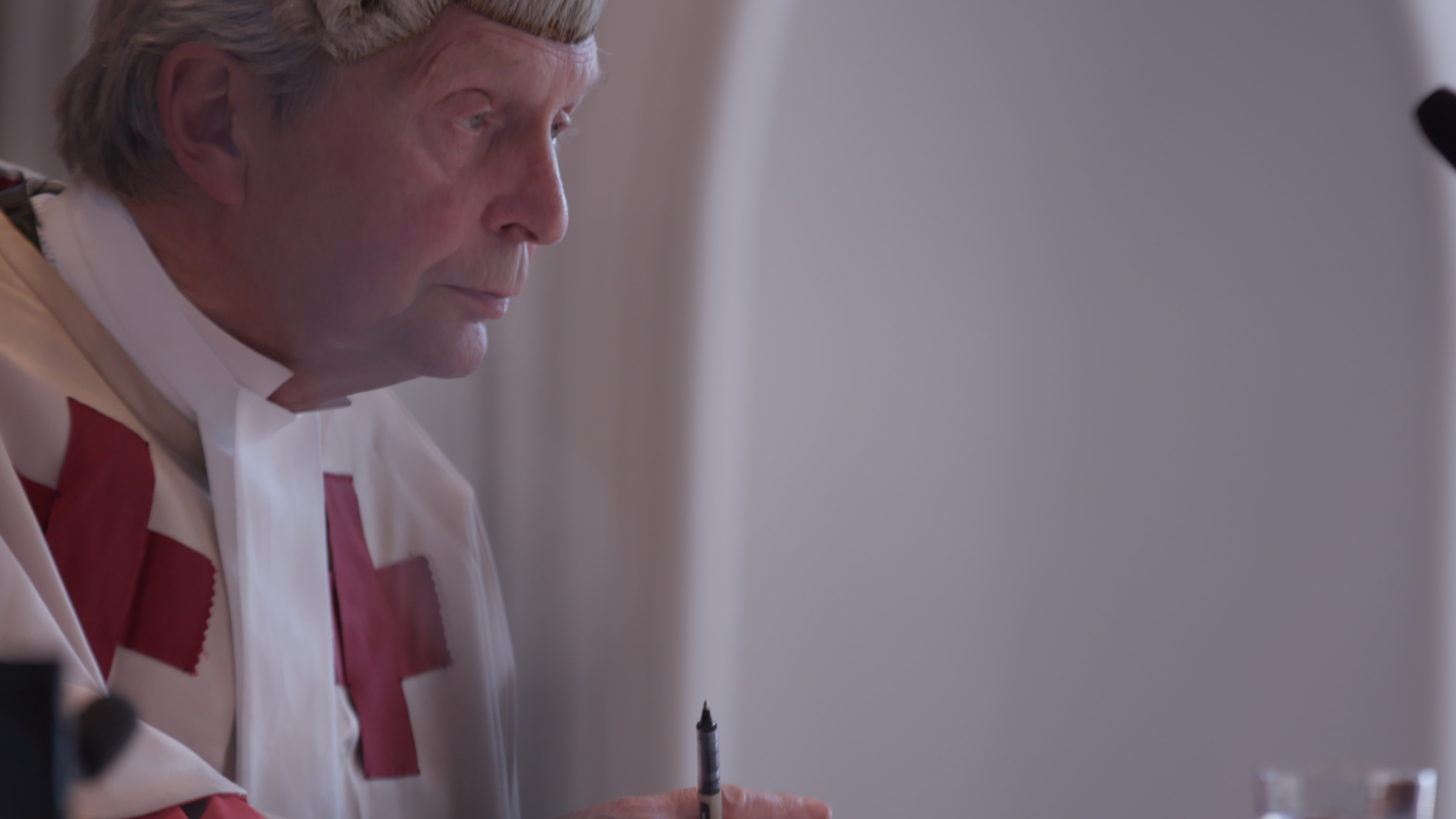

We are happy to announce a return to an in-person conference for 2022. Conference will take place Saturday 5th November in Glasgow University Union.
Please follow the link to purchase tickets: Modern Studies Association Conference 2022 Tickets, Sat, Nov 5, 2022 at 9:30 AM | Eventbrite


This afternoon (7th October 2020), Deputy First Minister and Cabinet Secretary for Education and Skills, John Swinney MSP, announced the current Scottish Government and SQA planning for how National Qualifications will be certificated in 2021. The changes are based on the SQA’s consultation in August, as well as the recent Priestly Review.
Among the headline announcements was a confirmation that National 5 exams will not take place, and will instead be replaced by the use of Teacher estimates. Meanwhile, exams for Higher and Advanced Higher are being planned for during a later-than-usual exam diet in late May, early June. This will be kept under constant review, with Teacher estimates being planned as a contingency option.
Looking to Modern Studies, there will be National 5 Question Paper, will the SQA has confirmed that they will not assess coursework, meaning the Assignment has been cancelled for 2020-21. Instead, the SQA is currently liaising with stakeholders to develop an alternative certification model, allowing Teacher estimates to form the basis of candidate certification.
As part of the consultation with stakeholders, the SQA can published guidance on producing estimates during the 2020-21 session on the website, while a new SQA Academy course is available for Teachers and Lecturers across Scotland to enrol in. Further subject-specific guidance on producing estimates is set to be released over the next few weeks.
Higher Modern Studies, in a similar modification to National 5, will also have no Assignment in the 2020-2021 session. However, a modified Question Paper is being planned for.
Under the current planning, Higher Modern Studies would continue to have two Question Papers. Paper 1, as usual, will last 1 hour and 45 minutes, with candidates still expected to complete three extended responses (2 x 20 mark essays, and 1 x 12 mark essay). Paper 2 will remain the same – 1 hour and 15 minutes for candidates to address three source questions, totalling 28 marks.
However, in a slight modification to Paper 1, the SQA has confirmed that further optionality will exist for candidates in all sections. These modifications will see candidates offered a choice four (rather than three) questions in Section 1 (‘Democracy in Scotland and the UK’) of the Question Paper, while Sections 2 and 3 will each have three questions (rather than two each) for candidates to choose from.
Finally, in Advanced Higher Modern Studies, the SQA’s current planning will see little changes for candidates. The 50-mark Dissertation goes ahead as usual, with the approved 2020-2021 titles list already available on the SQA website, while a 3-hour SQA Question Paper is also being planned for.
The only adjustment to Advanced Higher Modern Studies will be in the Question Paper, were each topic area will now feature a choice of two extended response questions, with candidates continuing to answer two questions from separate topics. The methodology and source questions will remain unchanged.

Owing to the current public health situation with COVID-19, and the restrictions place on public gatherings as a consequence, it’s not possible to hold the Modern Studies Association (MSA) Annual Conference in the usual way.
However, given that Annual Conference serves as a key CLPL opportunity for Modern Studies Teachers across Scotland, the MSA National Committee decided earlier this year to move Annual Conference to a virtual platform. It was decided that Conference should, if possible, be held via our website on Saturday 7th November 2020.
Today (5th October 2020), we’re pleased to confirm that bookings are now being taken for the MSA’s 2020 Virtual Conference. Conference is free for PGDE students, although a £10 flat fee applies for all other attendees. This cost covers the purchase of new software and the time put in to develop Virtual Conference.
As part of the day’s agenda, we are delighted to announce that Professor Chris Carman, Lecturer in Politics at the University of Glasgow, will deliver one of our keynote presentations. He will be looking at the results of the 2020 US Presidential election that will be held just days before Conference. Meanwhile, John Porter from the SQA will deliver a presentation about senior-phase Modern Studies attainment, and stallholders – including Bright Red, CND, Greenpeace, Hodder Education, Leckie and Leckie, Modernity Scotland, and the Scottish Youth Parliament – will be sharing resources and available via live chat on the day.
Bookings for Virtual Conference have now closed.

Earlier this month, the Modern Studies Association (MSA) fed into a response produced by the Royal Scottish Geographical Society to the OECD’s ongoing Independent Review for the Curriculum for Excellence.
The Royal Scottish Geographical Society were looking for Social Subjects submissions for a wider response to the OECD Independent Review into the Curriculum for Excellence, with the MSA input furthering that of SATH and SAGT.
Among some of the highlights included in our submission were that:

With ongoing restrictions placed upon peoples’ leisure, movements and work patterns to minimise the spread of COVID-19, the Modern Studies Association (MSA) has decided to hold our Annual Conference virtually for 2020.
Usually, Annual Conference is held in either Edinburgh or Glasgow, on the first Saturday each November, and serves as an enjoyable CLPL and networking opportunity for Modern Studies teachers.
However, given restrictions aimed at limiting the spread of Coronavirus are likely to continue for some time, the MSA’s National Committee has approved plans to hold the 2020 conference virtually.
At present, we are examining how Annual Conference – #MSA2020 – will work in a virtual landscape. However, we intend that the day will mirror our conventional conferences as much as possible.
We are planning for keynote speakers to deliver presentations based around a selection of course topics from National 5, Higher and Advanced Higher Modern Studies, with live chat to stand in for conventional chit-chat over coffee and bacon rolls.
It is also hoped that virtual stallholders will be on hand to answer members’ questions, and offer exclusive digital content to support practitioners nationwide.
Given the time that will be required of our National Committee to organise #MSA2020, and the purchase of new technologies to support the running of the event, attendees will be asked to pay a notional fee of £10 to attend.
Further details of #MSA2020 will be published in due course, but until then, you are invited to save the date: Saturday 7th November 2020.

The Modern Studies Association (MSA) has today (23rd August) published our response to the SQA’s ongoing consultation on how assessments for National 5, Higher and Advanced Higher Modern Studies could look for the 2020-2021 session.
On 14th August, the SQA published proposed amendments to the way candidates be assessed in the 2020-2021 session, given the ongoing COVID-19, and potential for future disruption to learning and teaching across the country.
Alongside a technical guidance document, which sets out the SQA’s proposed assessment arrangements for all NQ courses, interested parties have also been invited to complete an online consultation. The deadline for completing this online consultation is 24th August.
As part of the proposed adjustments for National 5 Modern Studies, the SQA is suggesting that candidates are given further optionality in six mark questions. The SQA’s technical guidance suggests that there will be two options for each 6-mark question in next year’s exam, giving candidates the opportunity to decide which one they’ll answer.
The SQA argues that optionality already exists with the 8-mark questions in National 5 Modern Studies, and that by extending this to 6-mark questions will help candidates who might have missed course content. There is no proposal to amend or otherwise remove the Assignment, at this point.
For Higher Modern Studies, the SQA is proposing that candidates are given more optionality for all sections of Paper 1. The SQA’s technical guidance proposes that there be 4 questions for Section 1 of the paper, while Sections 2 and 3 could offer candidates 3 questions.
In a similar move to National 5, the SQA proposes that no changes are necessary for the Assignment, which “lends itself to blended learning”, according to the technical guidance document. There are no proposals to change Paper 2 of Higher Modern Studies.
At Advanced Higher, the SQA now proposes that candidates are offered two extended response questions for each topic, with candidates still expected to complete two separate topics. There are no proposed amendments to the methodology questions or dissertation.
Those interested can access the SQA’s technical guidance document here, while the survey can be completed via this link.
The MSA’s response to the consultation was agreed at a National Committee meeting on 22nd August, with the full text of our response shown below.

As part of the ongoing public health situation, the SQA has published proposed amendments to the way candidates be assessed in the 2020-2021 session.
Given the inequitable circumstances which education found itself in during lockdown, and on the ongoing potential for candidates and teachers alike to self-isolate, as well as centres closing for deep cleaning, the SQA is seeking peoples’ views on how assessment might look over the next year.
The SQA has published a technical guidance document which sheds light on their proposals for assessment in each National Qualification subject in 2020-2021. Anyone who is interested can then respond via the official survey.
People who might wish to participate in the consultation have until Monday 24th August 2020 to complete the online survey.
As part of the proposed adjustments for National 5 Modern Studies, the SQA is suggesting that candidates are given further optionality in six mark questions. The SQA’s technical guidance suggests that there will be two options for each 6-mark question in next year’s exam, giving candidates the opportunity to decide which one they’ll answer.
The SQA argues that optionality already exists with the 8-mark questions in National 5 Modern Studies, and that by extending this to 6-mark questions will help candidates who might have missed course content. There is no proposal to amend or otherwise remove the Assignment, at this point.
For Higher Modern Studies, the SQA is proposing that candidates are given more optionality for all sections of Paper 1. The SQA’s technical guidance proposes that there be 4 questions for Section 1 of the paper, while Sections 2 and 3 could offer candidates 3 questions.
In a similar move to National 5, the SQA proposes that no changes are necessary for the Assignment, which “lends itself to blended learning”, according to the technical guidance document. There are no proposals to change Paper 2 of Higher Modern Studies.
At Advanced Higher, the SQA now proposes that candidates are offered two extended response questions for each topic, with candidates still expected to complete two separate topics. There are no proposed amendments to the methodology questions or dissertation.
Those interested can access the SQA’s technical guidance document here, while the survey can be completed via this link.

The SQA has today (4th August) published attainment data for Modern Studies, as candidates across the country receive their results by e-mail, post and text message.
Given the public health situation, this year has been like no other for candidates and teachers across the country, with exams cancelled for the first time ever.
As part of the alternative arrangements for certification this session, the SQA asked centres to produce estimated bands for all of their candidates, refine these bands, and then rank candidates within each refined band.
Today, as part of the attainment data published by the SQA, the extent of the moderation undertaken around teacher estimates has been revealed for all subjects.
In National 5 Modern Studies, 40.4% of candidates were estimated an ‘A’; 24% a ‘B’; 24.3% a ‘C’; 7.9% a ‘D’; and, 3.3% were estimated to have achieved no award at all. The SQA has moderated these to: 31.5%, 24.3%, 20.6%, 13.9%, and 9.8%.
At Higher, 43.5% of Modern Studies candidates were estimated an ‘A’; 25.6% were estimated a ‘B’; 21.3% a ‘C’; 6% a ‘D’; and, 2.6% were estimated to have not achieved an award. The SQA ended up awarding 35.7% of candidates an ‘A’; 24.8% a ‘B’; 19.2% received a ‘C’; 11.8% a ‘D’; and, 8.5% failed.
Teachers estimated that of Advanced Higher candidates, 40.1% would achieve an ‘A’; 30.8% a ‘B’; 20.9% a ‘C’; 5.9% a ‘D’; and 2.4% would receive no award. The SQA’s moderation changed these to 33.5%, 29%, 19.4%, 10.4% and 7.7%, respectively.
You can read the SQA’s moderation report for each level by clicking the links below.

The Scottish European Educational Trust (SEET)’s ‘Our World’ is a free film making project.
Designed to encourage global citizenship, language learning and uptake among pupils, the project is open to any team of four from S3 – S6, with no previous film making knowledge or experience required.
According to SEET, over 70% of participant pupils involved in last year’s project said they were more likely to take languages into their next year as a result of taking part.
All teams have to do to enter is come up with a creative idea for a film, based on this year’s theme. Then, with the help of staff from SEET, teams will put that idea into storyboard form and send it to SEET with an audio or video clip explaining it. The deadline for storyboard submissions is 3rd December 2019.
Working as part of a team of four, pupils participating in the project come up with a creative idea for a short film about being a citizen of the world. Their team should consider one of the following themes to get started:
Sustainable Tourism (going on holiday, exploring other countries and cultures and making a positive impact on the environment)
Migration and welcome (refugees, moving abroad, how people are treated)
Trade (how businesses work in different countries, importing and exporting)
The film produced must include the use of at least one language other than English, but how or when you use it is up to the team.
After all the entries are submitted, 18 teams from across Scotland will be invited to one of three regional film making workshop days (roughly 6 teams per workshop) where they will get the opportunity to make their film a reality, with pupils given technology and professional training on the day to help them.
Finally, to celebrate the completed films, teams will be invited to a premiere and awards ceremony, where they can showcase their work for the first time to friends and family.
Throughout the project SEET staff are happy to make trips to schools and answer any questions people might have.
If you’d like to register or sign up a team just click this link.

The Scottish Centre for Crime and Justice Research (SCCJR) has updated the various briefings and learning resources available on their website.
Briefings produced by the SCCJR, based at the University of Glasgow, provide a comprehensive overview of ‘Crime and the Law in Scotland’.
Among the resources available are briefings about the Scottish criminal justice system, violence against women and girls, youth justice, the Scottish prison system, non-custodial sentences, and the impacts of crime on groups in society.
Further briefings are being prepared for topics such as women in prison, crime and the media, and the successfulness of policies and measures aimed at tackling re-offending in Scotland.
The resources are available on the SCCJR website, or by clicking here.
Anyone who has questions or feedback on the resources is encouraged to contact the SCCJR by e-mailing enquiries@sccjr.ac.uk.